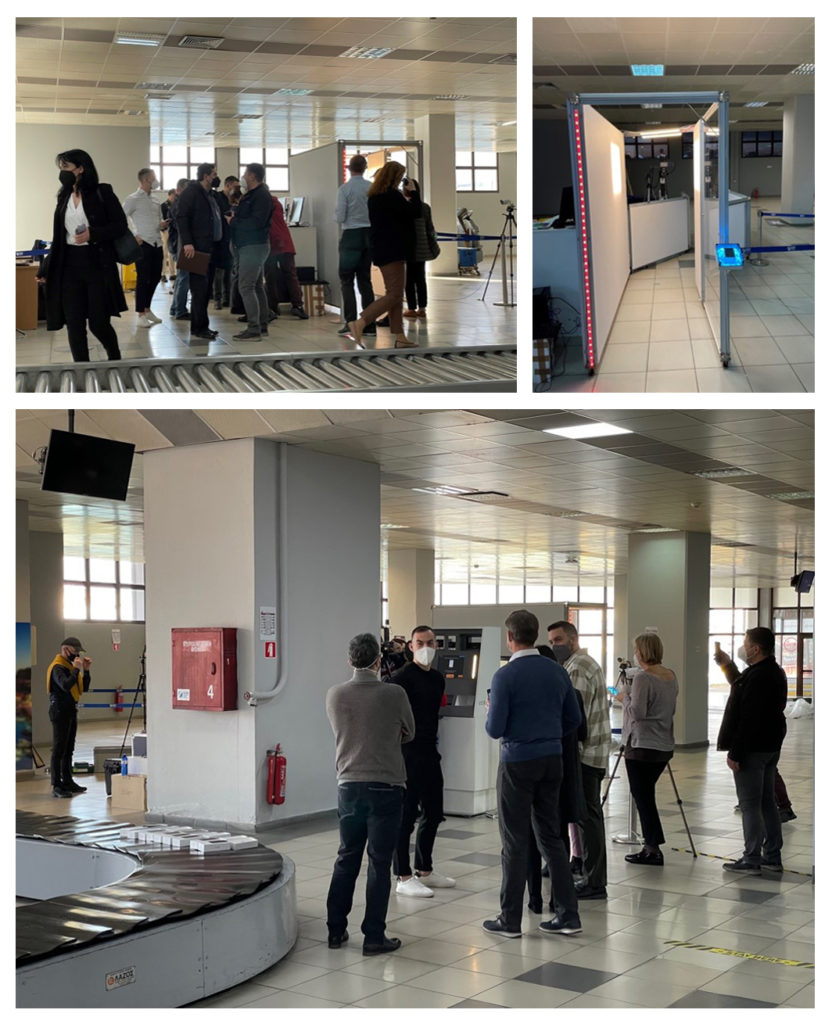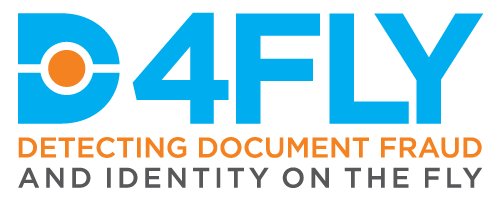On 21st – 25th of February 2022, the D4FLY team successfully organised and completed the Greek Field Test in the International Cruise Ship Terminal in Piraeus Port in Greece, testing and demonstrating in real environment its identity verification solution for a highly automated on-the-move border control solution for travelers arriving by cruise vessels.
The Field Test was set up by the local team of the Piraeus Port Authority (PPA) supported by European and Development Programs Division (YDEAP-Hellenic Police) and National Center of Scientific Research “Demokritos” (NCSRD). There were participating members of NCSRD, PPA and YDEAP as well as partners from the consortium as travelers and expert members of YDEAP-Hellenic Police in the role of Border Guards. Moreover, nine to twelve technical partners were involved physically and three to six, remotely in order to ensure the smooth and efficient run of the whole test procedure.
The enrolment kiosk prototype was set up in the arrivals hall at Piraeus Port International Cruise Ship Terminal. The kiosk, the local network as well as smartphones with the D4FLY traveler’s app was set up by the Veridos team together with technical partners. The Biometric sensors in the kiosk used were: 3D face camera from project partner Raytrix, a thermal camera, a RGB-camera, an iris capture device, a passport reader from project partner Regula, and a NFC reader. There were approximately 30 complete enrolment sessions done with people as ‘travelers’, successfully capturing all biometrics as well as running presentation attack detection (PAD) components, like liveness detection and iris PAD, in the background.
The biometric verification corridor was set up in the Arrivals hall in Piraeus Port International Cruise Ship Terminal. The Piraeus Port team, YDEAP team and D4FLY consortium members acted as travelers, and expert members of YDEAP-Hellenic Police acted as border guards. More than 200 verification walks were performed, with a very good overall positive verification rate.
The last session day, an evaluation and lessons learnt session followed, where Field Test participants had the opportunity to exchange opinions, comments and recommendations for further improvements with the coordination team and the technical consortium partners as well, where it came out that systems worked as expected providing a smooth and easy to use experience to the participants.

The D4FLY partners are now working on an updated version of the technology, aiming to address all feedback from the participants.

